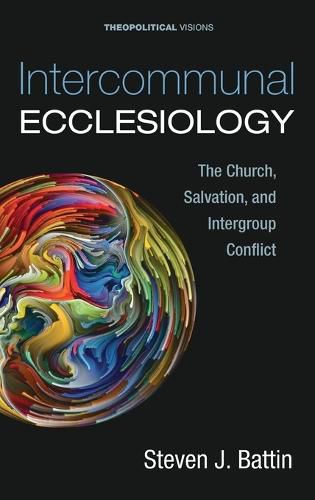Readings Newsletter
Become a Readings Member to make your shopping experience even easier.
Sign in or sign up for free!
You’re not far away from qualifying for FREE standard shipping within Australia
You’ve qualified for FREE standard shipping within Australia
The cart is loading…






This title is printed to order. This book may have been self-published. If so, we cannot guarantee the quality of the content. In the main most books will have gone through the editing process however some may not. We therefore suggest that you be aware of this before ordering this book. If in doubt check either the author or publisher’s details as we are unable to accept any returns unless they are faulty. Please contact us if you have any questions.
What do Christian communities imagine when they think of themselves as "church"? And how do these ecclesiological imaginations inform Christianity's past and present entanglements with violence and injustice? Intercommunal Ecclesiology addresses these questions by examining the distinctive role intergroup dynamics play in shaping Christian collective behaviors against the "other" that are incongruent with Christian theological principles, such as love of neighbor. Through interdisciplinary engagement with social psychology, systems theory, biblical criticism, and studies in the early history of Christianity, this book makes a case for a theological re-envisioning of the church at the three-way intersection of an anthropology of intergroup dynamics, a soteriology adequately rooted in God's historical salvation plan, and a Christology sensitive to Christ's collective embodiment. The book argues that within God's plan of historical salvation, the church is supposed to function as God's communal response to intercommunal disunity, a role it fulfills with integrity only when and where it enacts itself as a counterperformance to aggression, conflict, and indifference between human communities.
$9.00 standard shipping within Australia
FREE standard shipping within Australia for orders over $100.00
Express & International shipping calculated at checkout
This title is printed to order. This book may have been self-published. If so, we cannot guarantee the quality of the content. In the main most books will have gone through the editing process however some may not. We therefore suggest that you be aware of this before ordering this book. If in doubt check either the author or publisher’s details as we are unable to accept any returns unless they are faulty. Please contact us if you have any questions.
What do Christian communities imagine when they think of themselves as "church"? And how do these ecclesiological imaginations inform Christianity's past and present entanglements with violence and injustice? Intercommunal Ecclesiology addresses these questions by examining the distinctive role intergroup dynamics play in shaping Christian collective behaviors against the "other" that are incongruent with Christian theological principles, such as love of neighbor. Through interdisciplinary engagement with social psychology, systems theory, biblical criticism, and studies in the early history of Christianity, this book makes a case for a theological re-envisioning of the church at the three-way intersection of an anthropology of intergroup dynamics, a soteriology adequately rooted in God's historical salvation plan, and a Christology sensitive to Christ's collective embodiment. The book argues that within God's plan of historical salvation, the church is supposed to function as God's communal response to intercommunal disunity, a role it fulfills with integrity only when and where it enacts itself as a counterperformance to aggression, conflict, and indifference between human communities.